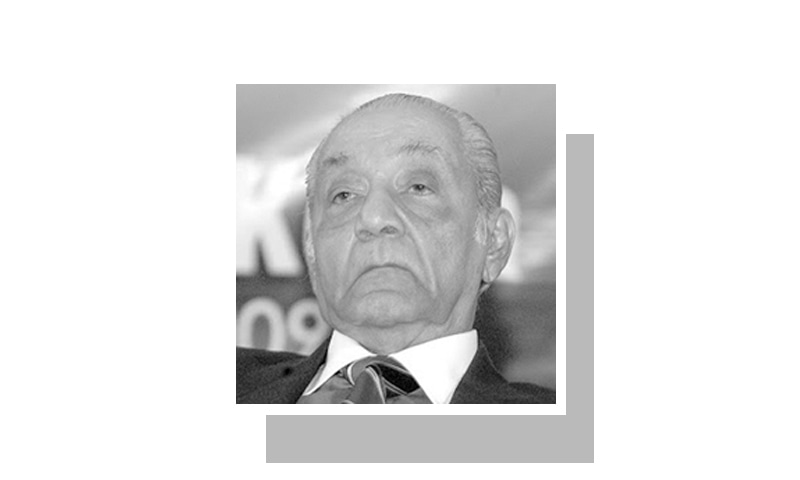NEVER before has Indian Kashmir reacted so violently to the death of a militant as it has to the killing of Burhan Muzaffar Wani by security forces on July 8. This 22-year-old Hizbul Mujahideen commander had become an iconic figure in the Valley. Reportedly, a decision to kill him was taken two months ago at the highest level.
Chief Minister Mehbooba Mufti’s PDP base is south Kashmir where Burhan Wani was born and buried. She was conspicuous by her absence while her people were plunged in grief and anger, and did not deign even to visit the injured at the hospitals. Nor did any of her MLAs. Nor did Omar Abdullah. On July 11, she issued a desperate appeal for help to political leaders, businessmen, religious heads to “rise to the occasion” and help the government to restore peace. The Hurriyat leaders were left out.
However, on July 10, a minister and official spokesman Naeem Akhtar appealed to “the mainstream political parties” and “also to those who are not in the mainstream and are really concerned about these killings … they should support us”. This, to Hurriyat leaders who have been kept under house arrest for months on end.
Asked about the scale of protests he cynically said: “The rage is because of perception, romance.” On the use of pellet guns, he said: “We disapprove of it.… But we will have to persist with this necessary evil till we can find a non-lethal alternative.”
Hugely excessive force was used against the people.
At the SMHS hospital in Srinagar, Dr Sajjad Khanday, an ophthalmologist said on July 10 he had never seen so many people with serious ocular injuries in a day. The first patient with eye injury arrived at 2.30pm on the very day after Wani’s killing.
Muzamil Jaleel of Indian Express reported from Srinagar on July 11, that all 72 beds in the ophthalmology ward of that hospital were occupied; some by two patients each. They were mostly young, many of them minors, including a 12-year-old. Dr Khanday told him: “We have already operated on 92 patients. Every hour, more young men arrive with pellet injuries to the eyes.”
Policemen in plainclothes infest the hospitals to record the patients’ antecedents “even before we can examine them”. Doctors said that the use of pellet guns is “unprecedented”. One said “We have never seen anything of this magnitude. Every one who came here has pellet wounds above the chest”.
A senior doctor at the SMHS, the leading hospital, said, “The objective definitely seems to kill or maim the person for life” Where else has this happened?
Wani has been branded in India as a ‘terrorist’. An official report by a former IGP Abdul Ghani Mir said that Burhan “was harassed/beaten by Special Operations Group, Tral frequently”. He lost his brother in an encounter with the forces. It is incidents like these which make rebels and it is the atmosphere created by the PDP-BJP alliance which drove them to rebellion.
The PDP was formerly soft on the separatists and ostensibly stood for Kashmiri’s rights. It turned its back on that with its sordid pact with the BJP. Who will stand up to the centre over wrongs done to Kashmir if its own government is a tool of the centre?
Militancy can be quelled by two factors; one is New Delhi’s conciliation with the people; the other is dialogue with Pakistan. The Modi government has nothing to offer to Srinagar or to Islamabad. Talk of dialogue is fine. But has New Delhi anything to offer to either as a compromise?
As Mirwaiz Umar Farooq said: “There is no scope for peaceful resistance.”
It is woefully clear that hugely excessive force was used against a people in grief. This calls for an impartial probe which neither the Modi nor the Mehbooba regimes will institute. Citizens’ inquiries have a fine tradition in the subcontinent. The truth must be told.
More such outrages will occur unless the truth about Kashmir is squarely faced. Its people sympathise with the wielders of the gun because without them, the people feel, no one will listen to them. Sri Lanka’s Tamils felt the same way about the Tamil Tigers.
The Kashmir dispute cries out for a solution on both dimensions — internal and external. For a people alienated and wronged for decades, any provocation will set them aflame. The Kashmir dispute will not vanish unless their aspirations are met.
Within Kashmir the situation will only deteriorate. Mehbooba Mufti has demonstrated both unfitness to be chief minister and lack of empathy for the people; as did Omar Abdullah. The youth do not abide by any leader’s command. The people are desperate. The centre and its tool the BJP-PDP regime has no sympathy for them. What will emerge from such a situation?
The writer is an author and a lawyer based in Mumbai.
Published in Dawn, July 16th, 2016











































